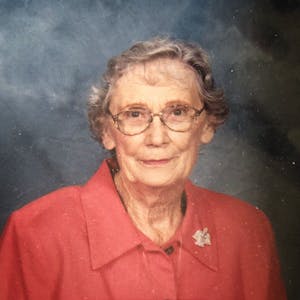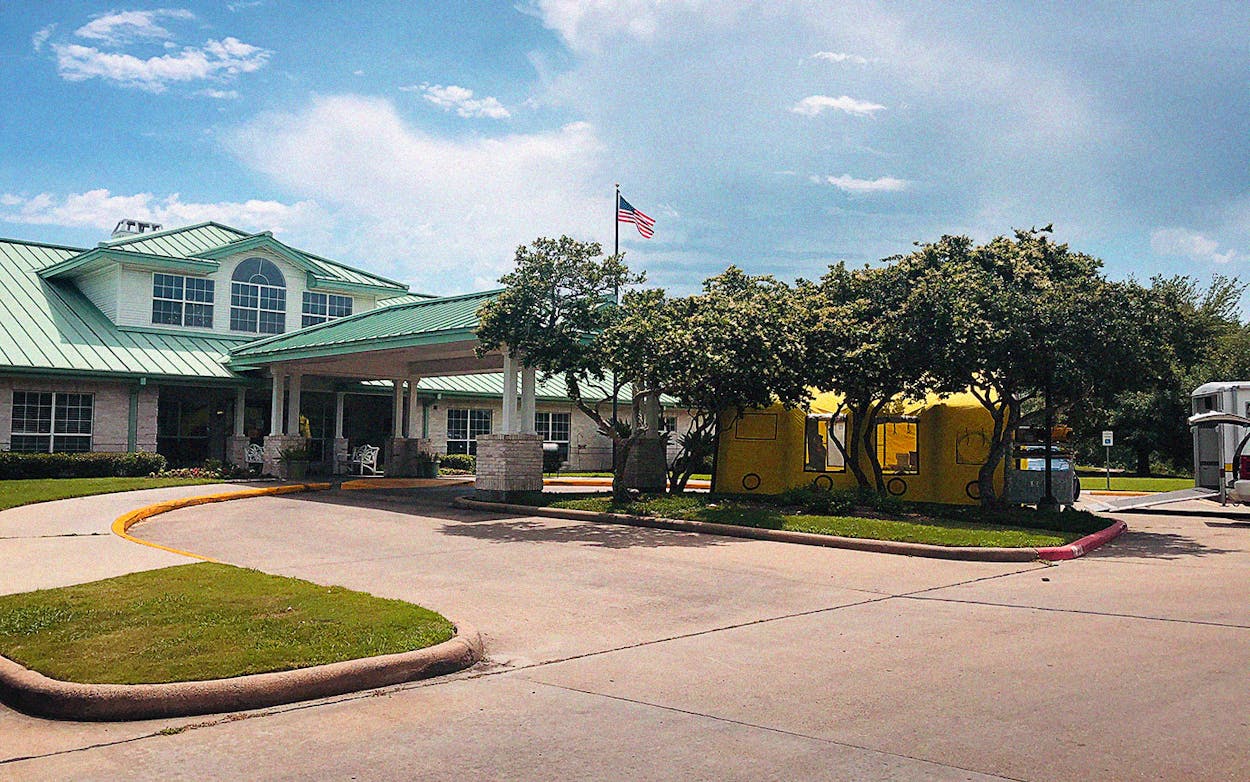Karan Janes had heard good things about the Brenham Nursing and Rehabilitation Center. The staff, a relative told her, was courteous, careful, and professional. That was important to Janes because her ninety-year-old mother, Margie McCracken, was recovering from bone fractures that she’d sustained at her last nursing home. Janes suspected her mother had been abused and desperately hoped that moving to a new facility would keep her safe.
But days after McCracken’s family moved her into the facility on March 25, Brenham Nursing and Rehabilitation Center was overwhelmed by COVID-19.
McCracken, a longtime Sunday school teacher who’d spent much of her life raising cattle and swine on a farm near Tomball, was country tough. Years before she’d even recovered from a 107-degree temperature. But even she could not withstand the brutal impact of the coronavirus. McCracken caught the virus and passed away on Good Friday. Eleven others in BNRC have also died from COVID-19.
“We were trying to get away from one problem and fell into another problem, only this time it was deadly,” Janes said.
Today, the white and green facility a short drive from the Blue Bell Creameries headquarters has become one of the most potent sites of viral infection in the state, with nearly seventy of the facility’s ninety residents and workers stricken by the coronavirus, according to Brenham health officials. As of Friday afternoon, at the request of Senator Lois Kolkhorst and Washington County and Brenham officials, the State of Texas launched a Mobile Integrated Healthcare Unit to BNRC, deploying a large yellow medical tent just outside the nursing home’s front door. Inside the tent, medical workers who provide daily health screenings for staffers and residents are outfitted in masks and bulky, protective suits.

Perched atop a sloping hill that separates it from the local high school, the BNRC sits at the end of a long, curving driveway. Lately, that driveway has been lined with dozens of homemade signs, each with a pink heart and the name of a caretaker working inside the facility. A larger sign, surrounded by cutouts of yellow stars and balloons, near the front of the facility reads, “Thank You — In this together.”
The tragic irony of that message, of course, is that dozens of residents still inside the facility are cut off from family as they battle illness with as little human contact as possible.
Janes said she was forced to say goodbye to her dying mother via speakerphone and was unable to attend her burial because of the danger posed by the virus. A hospice worker told her that her mother’s eyes briefly opened when she heard the sound of her daughter’s voice. She takes comfort in that detail, but the sudden, distant goodbye has left an open wound. She says she hasn’t heard from BNRC.
“They didn’t call me to say they’re sorry,” she said. “No condolences—nothing.”
Reached for comment, Brooke C. Ladner, a spokesperson for Regency Integrated Health Services, which manages BNRC, said that “since the onset of the coronavirus pandemic,” the facility’s team members “have worked tirelessly to care for the patients amid increasingly difficult circumstances.”
Though medical professionals like Dr. Gregg Workman, a Brenham physician who is treating elderly patients inside the facility, had studied models predicting the virus would hit small town Texas beginning in early April, the speed of the assault still took people by surprise.
Workman said the first patient who would eventually test positive at the facility—a man in his eighties—initially went to a local hospital because of a mild urinary tract infection. At the time, he had none of the telltale coronavirus signs like fever, malaise, or a dry cough. But not long before he was supposed to be discharged, Workman said, the man’s temperature spiked to 102 degrees, prompting doctors to alert BNRC staffers on April 5. But by then, the doctor lamented, it was already too late.
“We live a long time here in Brenham,” said Workman, who has been treating the town’s residents for the past seventeen years. “The folks here are of German heritage and, for whatever reason, it’s not uncommon for folks to live into their upper nineties and hundreds. When you’re dealing with that age group you’re going to see high mortality.”
For a time, Workman said he tried treating some of his elderly patients with hydroxychloroquine, the anti-malarial medication touted by President Trump as a potential game-changer for COVID-19. Though he hasn’t seen any negative side effects from the treatment, Workman stopped prescribing the drug a week ago as medical professionals discovered that it was causing heart problems that could lead to death.
Without a miracle cure or a vaccine to fall back on, Workman said he expects that “quite a few” more BNRC residents will succumb to the virus.
The virus’s rapid spread through BNRC highlights why nursing homes remain so vulnerable to the contagion. Elder care facilities have close living quarters and heavily used communal spaces. A single nurse who isn’t necessarily trained to deal with infectious diseases can attend to six or seven patients a day, Workman said, transporting the virus throughout the facility before obvious symptoms emerge. One of the earliest patients to get the virus at BNRC was hand-fed at a nursing station, which likely contributed to the virus’s proliferation because others were fed at the same station, the doctor noted.
“The virus is so contagious that it puts pressure on you to be perfect or it will spread,” Workman said. “But no matter who you are, you can’t be perfect one hundred percent of the time. Eventually, you’ll touch a surface and then touch your face and the virus will spread. It’s unrelenting.”
Janes and her family still can’t believe their beloved mother and grandmother is gone, partly because they’d always considered her so strong. A few years ago, after McCracken recovered from another serious illness, her grandson had jokingly compared her to one of the old Brahman cows that the family is so familiar with.
“He said, ‘Grandma’s like an old Brahman cow—one day you think you’re gonna have to go out there and shoot her and then you go out in the next morning and she’s standing there grazing,’” Janes said, letting out a few chuckles between tears.
“I just wish I could’ve said goodbye in person, holding her hand,” she added.








